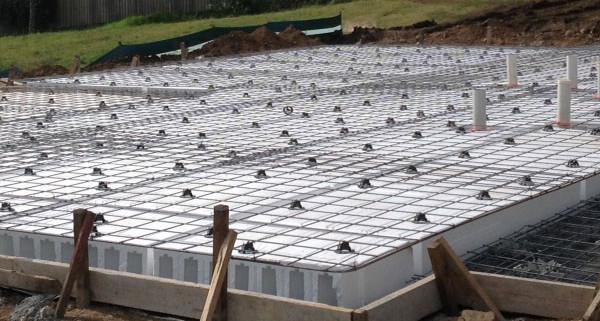When it comes to creating strong and long-lasting concrete structures, formwork plays a key role. Concrete on its own is a fluid mixture that takes time to harden. Without the right support, it can't hold its shape or achieve the finish you want. This is where concrete formwork comes in—a temporary or permanent mold that holds concrete until it sets and gains strength. At Morristown Masonry, Pavers and Concrete , we've seen how good formwork can make the difference between an average project and one that stands the test of time.
What is Concrete Formwork?
Concrete formwork is essentially a mold into which fresh concrete is poured. It provides the desired shape, support, and alignment until the concrete hardens. Once the material sets, the formwork can be removed (in most cases) or left in place if it is designed as permanent formwork.
Think of formwork as the skeleton that guides concrete into the structure you want—whether it's a driveway, a foundation, a wall, or decorative concrete work.
Why is Formwork Important?
Formwork is more than just a temporary support system. It ensures:
-
Shape and Precision – Without formwork, it's nearly impossible to achieve clean edges and accurate dimensions.
-
Strength and Stability – It keeps the concrete in place until it gains enough strength to support itself.
-
Smooth Finish – Well-prepared formwork results in smooth surfaces that reduce the need for additional finishing.
-
Safety – Proper formwork prevents structural failures during the curing process, protecting workers and property.
Different Types of Concrete Formwork
There are several kinds of formwork used in construction. Choosing the right one depends on the type of project, budget, and desired finish.
-
Timber Formwork
One of the oldest and most commonly used types, timber formwork is easy to build and lightweight. It’s great for smaller projects but less durable than modern alternatives. -
Plywood Formwork
Plywood sheets are often combined with timber to provide smooth surfaces and reusable panels. It’s widely used in both residential and commercial construction. -
Steel Formwork
Durable and reusable, steel formwork provides a clean finish and is commonly used for large-scale projects. Although more expensive upfront, it saves costs in the long run because of its longevity. -
Plastic Formwork
Lightweight and modular, plastic formwork is often used for repetitive work like housing projects. It’s easy to clean and handle. -
Aluminum Formwork
Strong yet lighter than steel, aluminum formwork is becoming more popular due to its efficiency and precision. -
Permanent Formwork
Instead of removing it after the concrete sets, this type remains in place and becomes part of the finished structure, adding strength and insulation.
The Process of Using Formwork
At Morristown Masonry, Pavers and Concrete, we follow a systematic approach when working with formwork:
-
Planning – Understanding the structure and designing formwork that suits the project’s specifications.
-
Setting Up – Assembling the formwork panels and ensuring alignment and stability.
-
Pouring Concrete – Carefully pouring concrete into the mold to avoid air pockets or uneven distribution.
-
Curing – Allowing the concrete to set while the formwork holds it in place.
-
Stripping – Removing the temporary formwork once the concrete is strong enough (if it’s not permanent).
-
Finishing Touches – Inspecting the surface, making adjustments, and applying any finishes as needed.
Best Practices for Concrete Formwork
If you’re planning a project that involves concrete formwork, here are some helpful tips:
-
Always ensure the formwork is stable and leak-proof.
-
Use high-quality materials to avoid deformations.
-
Apply release agents to prevent concrete from sticking to the formwork.
-
Monitor curing time carefully to avoid removing formwork too early.
-
Work with professionals who have experience in masonry and concrete work.
Benefits of Professional Formwork Services
DIY projects can be tempting, but when it comes to concrete formwork, professional expertise is invaluable. Skilled contractors, like our team at Morristown Masonry, Pavers and Concrete, bring:
-
Experience – Knowing which formwork works best for each project.
-
Efficiency - Saving time and reducing costly mistakes.
-
Quality – Ensuring a durable and polished final product.
-
Safety – Following proper techniques to minimize risks.
Final Thoughts
Concrete formwork may seem like just a temporary step in the construction process, but its importance cannot be overstated. It ensures strength, durability, and the overall success of your project. Whether you're planning a new driveway, foundation, or custom masonry project, the right formwork lays the foundation for results you can rely on.
At Morristown Masonry, Pavers and Concrete , we combine expertise with the latest techniques to deliver flawless results every time. If you're thinking about your next concrete project, remember—strong formwork leads to strong structures.

